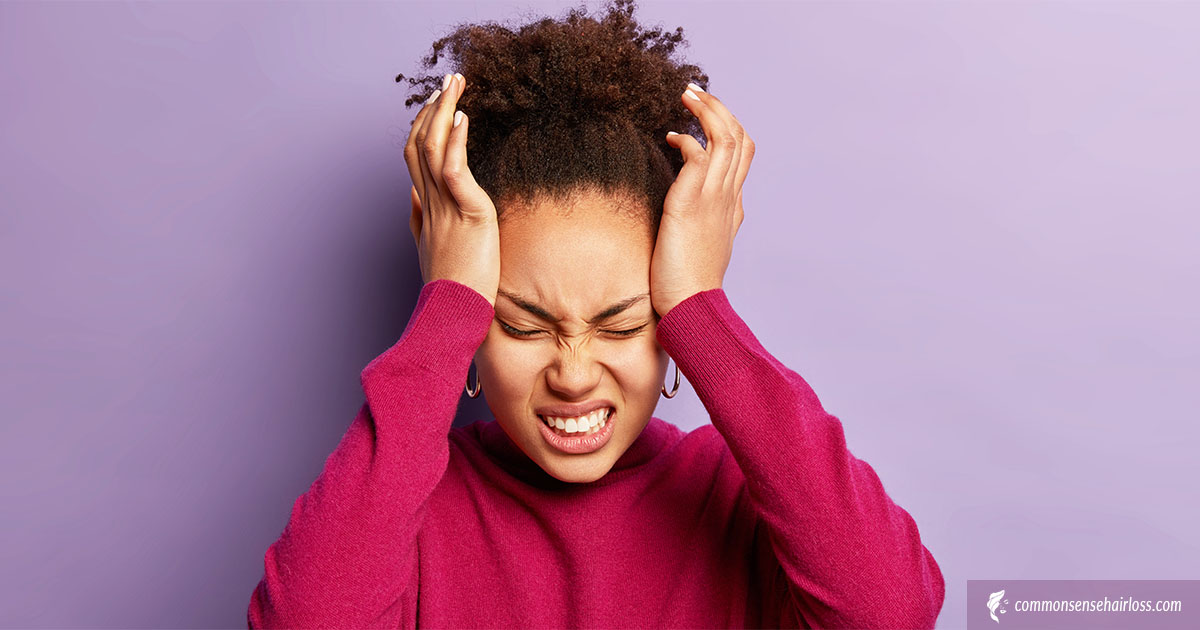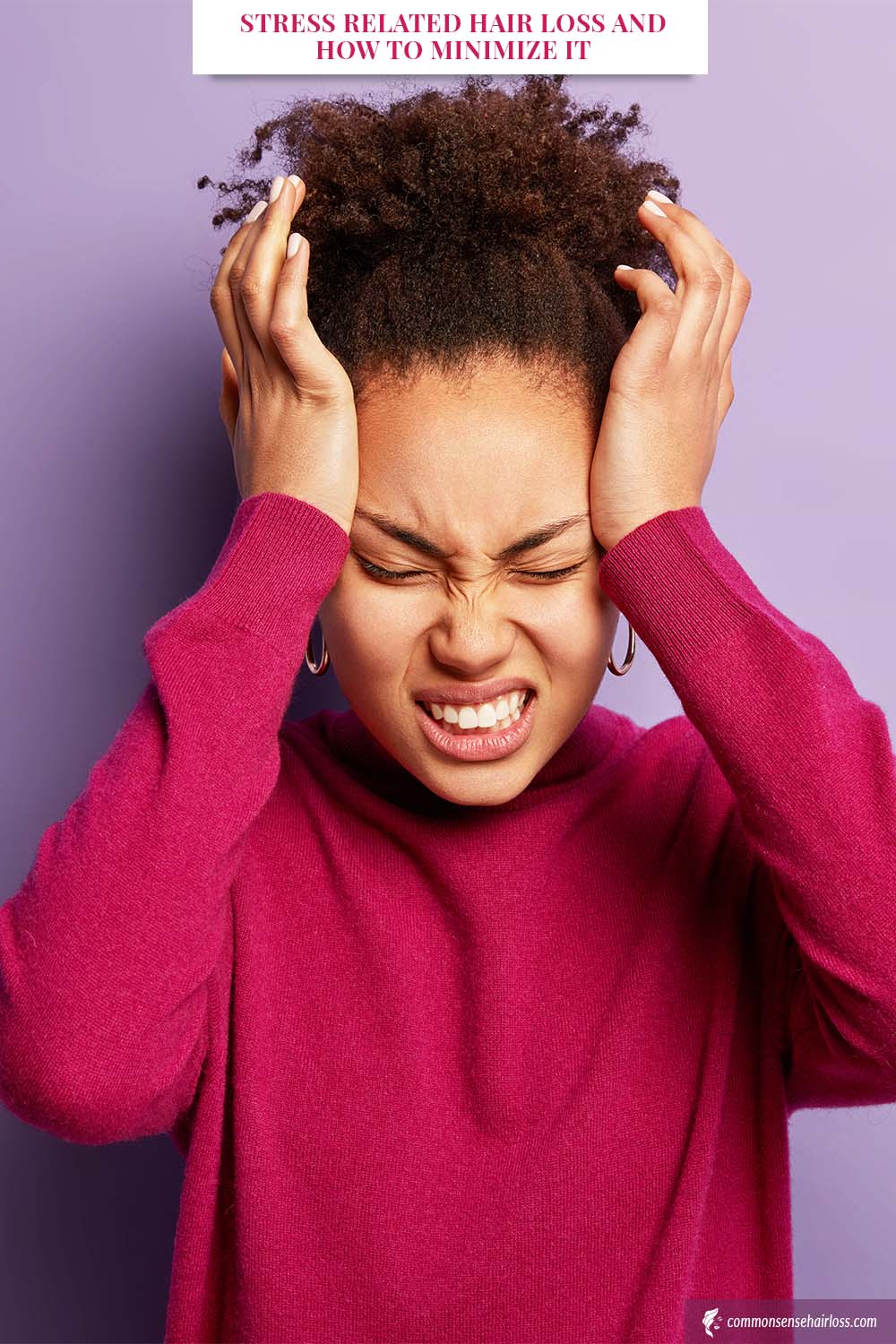
Stress related hair loss or other causes of hair thinning, is something that most people are reluctant to discuss. Even when it’s their dermatologist, they still might feel ashamed or embarrassed.
Particularly women who are experiencing above average thinning, doesn’t really want to talk about it. However, as we age, we all experience some form of hair loss. It’s just a part of the aging process. But excessive hair loss is something entirely different.
Stress Related Hair Loss
In addition to virus and medical conditions, stress has long been related to hair loss. While the normal hair shedding is 50-100 hairs monthly, stress can cause you to shed 100s of hairs per day.
There’s a methodology to dealing with stress related hair loss. First, accept that it might happen right now. Second, realize that you can address it, even if you can’t repair patchiness overnight.
Continue reading to learn more about stress related hair loss and how to minimize stress.
Normal Growth Cycle
The roots of your hair are in a repetitive cycle of growing, shedding, and resting. As a result, it’s never just stagnant.
The growth phase is genetically determined and can last anywhere from three to five years. But sometimes longer. Transitional phase occurs after the growth phase. This phase signals the end of the active hair growth for about two to three weeks.
Then, there’s the resting phase which usually lasts three months or so. During this phase, the hair remains in the follicle until it’s pushed out by new growth. And this is the phase that can be effected by significant stress. Consequently, stress causes the hair to shift into the resting phase where it’s more easily shed.
Hormones, Hair And Stress
More patients than ever before are being seen by doctors for anxiety and stress related hair loss. Stress causes your body to experience an increase in its cortisol levels. Cortisol is released form your adrenal glands, which sit on top of your kidneys.
When this is in your system, cortisol interacts with your hormones. As a result, your hair goes into the resting phase. And this resting phase is when the hair is most susceptible to falling out.
In addition to increased hair shedding, stress can also cause your scalp to itch. The itching leads to scratching and prompts those hairs to fall out.
How To Minimize Stress
Given that stress can have a profound effect on your body, hair, and skin, minimizing the causes is highly recommended. When your body is constantly having to react to challenges and demands, it stress related hair loss ensues.
Here a a few healthy ways to reduce stress:
01. Assert Yourself
Albeit you want to be the star at the office, it’s ok to say ‘no’. The extra demands on your energy and time places extra stress on you. You don’t have to always meet the expectations of others. Instead, set your own!
02. Exercise Regularly
When it comes to a healthy mind and body, exercise is always at the top of the list. In addition to having physical health benefits, exercise is a powerful stress reliever. Even if time doesn’t allow an hour on the StairMaster, walking is equally beneficial. For instance, you can take 30 minutes to eat lunch at work and the remaining 30 minutes to walk it off. That’s a win, win.
03. Eat and Drink To Optimize Your Health
Some people try to reduce stress by eating too much or drinking alcohol. These actions obviously feel good in the moment, but actually add to stress in the long run. Caffeine is also known to compound the effects of stress. So, the best thing to do is eat a healthy, balanced diet and consume alcohol in moderation.
04. Reduce Stress Triggers
If you’re like most people, life is filled with too many demands and not enough time. For the most part, these demands are ones you we chosen because we agreed to them. To help reduce these triggers of stress, practice time-management skills like asking for help when appropriate. You can also, pace yourself, reserve time to care for yourself, and set priorities.
05. Set Realistic Expectations and Goals
It’s healthy and okay to realize that you cannot be 100% successful at everything at the same time. Be mindful of the things you can control and work on accepting the things that you can’t control.
You may also enjoy reading: Why Wear Hats With Hair Attached?




